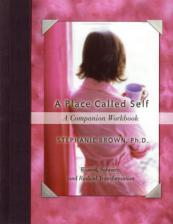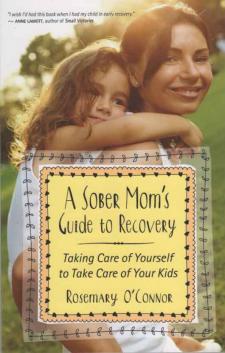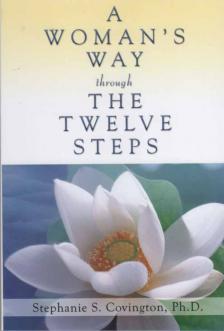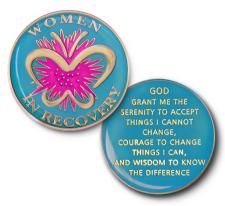
Addiction to drugs and/or alcohol is an equal opportunity disease; it does not distinguish between men and women; however, women are generally affected differently than men. Women tend to progress quicker in addiction, face a range of different barriers when attempting to get help and they recover differently than men. It is important to recognize how critical these differences can be when it comes to identifying the addiction, determining the most effective treatment options, and recognizing the challenges women may encounter while on their journey to recovery.
Love This: The Recovering Heart
Gender Differences
Women are more likely than men to enter treatment via the mental health and child welfare systems, whereas men are more likely to enter treatment through the criminal justice system. In most addiction cases, people use drugs or alcohol as a way to either alleviate underlying mental health disorder symptoms or to cope with emotional pain and stress. These contributing factors in addiction differ for men and women. For women, they are more likely to have food disorders, depression, and anxiety. Women also struggle more often than men with body image issues and also past sexual and physical abuse and trauma, which can all significantly impact the start of an addiction disorder or worsen an existing addiction tendency. Treatment centers that cater to exclusively female patients are designed and equipped to handle these unique, gender-specific problems that women tend to face. Women do not necessarily recover better in women only rehabs. Both mixed-gender and gender-specific treatment programs are effective in helping women achieve and maintain sobriety. However, women with a history of past sexual abuse or physical violence from men may benefit from a women-only facility where they can receive supportive care from female counselors and therapists.
 DaybreakDaily Meditations for Women Survivors of Sexual Abuse
DaybreakDaily Meditations for Women Survivors of Sexual Abuse
These 366 daily affirmations and meditations extend support and wisdom to women who have survived childhood sexual abuse. With understanding, compassion, and strength, the author addresses issues such as intimacy, fear, play, sharing secrets, and anger.
Coping Skills
One of the most common challenges women face while on their journey of recovery is coping strategies. Women are still the primary caregivers for minor children, and they are also more likely than men to be caretakers for elderly or disabled family. Women are more likely to measure their life satisfaction against the health of their relationships, and the ability to connect with other people. Getting clean and sober doesn’t simply mean you are no longer using alcohol and/or drugs; it also means you need to establish a completely new lifestyle, one that is supportive of your recovery. It’s also important to learn coping skills that allow you to deal with the negative emotions, such as depression, anger and sadness that are often present during recovery. It’s essential that you develop these coping skills while you are establishing your new life. Regular meetings with your counselors and therapists are extremely beneficial for learning effective coping skills.
 A Place Called Self Workbook (Women, sobriety, and radical transformation)
A Place Called Self Workbook (Women, sobriety, and radical transformation)
A Place Called Self: A Companion Workbook addresses one of the greatest gifts and biggest challenges for women in recovery: Discovering the real, true self.
Recovery
Shame and guilt surrounding addiction issues tend to impact women more profoundly than men. Forming strong, supportive relationships with a therapist and also in group therapy with other patients is a significant motivator for women. A meaningful way to improve a woman’s chances of recovering from addiction is to cultivate strong and healthy relationships with other women in recovery who share similar struggles, concerns, and victories.
Problems with interpersonal and romantic relationships tend to be a common trigger for women with substance use issues. Initial treatment and ongoing recovery for women tend to be the most successful when therapy focuses on helping women achieve stronger levels of self-reliance outside of rehab. Fostering a sense of empowerment, and teaching women to trust themselves over others is vital for women’s recovery from substance abuse.
 A Sober Mom’s Guide to Recovery
A Sober Mom’s Guide to Recovery
Recovering from an addiction is tough enough, but when you throw in the tremendous responsibilities of motherhood, resisting cravings and remaining abstinent–much less enjoying the rewards of sobriety–can seem like an impossible challenge.
Boredom
Like many other women in recovery, before beginning your journey to recovery, your free time was probably spent using drugs and/or alcohol. Now that you are sober and in recovery, you may encounter days that are filled with boredom. Unfortunately, this may be a threat to your sobriety, so it’s essential that you find productive ways to spend your time. This is the perfect opportunity to use your time doing the things that you used to enjoy prior to your addiction, such as playing sports, reading, enjoying spending time outdoors or take up that hobby you have wanted to try.
 A Woman’s Spirit Daily Meditations for Women
A Woman’s Spirit Daily Meditations for Women
A Woman’s Spirit is a collection of wise, compassionate daily meditations for women now living a sober life and seeking spiritual fulfillment.
Leaving Treatment
Without a doubt, one of the greatest challenges many women face while on their journey to recovery is relapsing. Stress, cravings, anxiety and even old friends may all be a potential threat to your sobriety when you are in recovery. The good news is that there are a variety of ways you can overcome the risk. For instance, routinely attending meetings, especially when you are feeling as though you may get off track, scheduling regular meetings with your counselors and therapists will allow you the opportunity to talk about the triggers concerning you and most importantly, you’ll need to find and rely on a support system of mentors and peers.
 A Woman’s Way Through The Twelve Steps
A Woman’s Way Through The Twelve Steps
Love This: A Woman’s Way Through The Twelve Steps
Leaving rehab and beginning the road of recovery is a great accomplishment, one you should be very proud of; however, it also requires you to be disciplined. It’s important that you recognize your purpose in life, adapt to a new and sober lifestyle and learn to rely on a support system. Most importantly, you should believe in yourself and be proud of your accomplishments thus far.
To learn more information about recovery and a successful journey, visit My 12 Step Store.
 Women in Recovery Turquoise Coin
Women in Recovery Turquoise Coin
Love This: Women in Recovery Turquoise Coin

 The Recovering Heart
The Recovering Heart